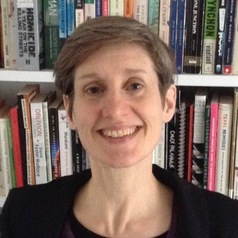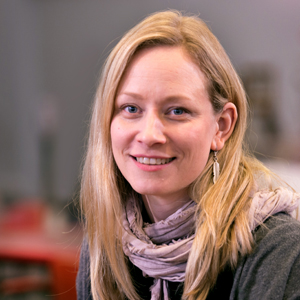Speakers

Esther Eidinow
“My broad area of expertise is ancient Greek society and culture, with specific focus on ancient Greek religion and magic. I have published monographs on oracles, curse tablets and binding spells, concepts of fate, luck and fortune, and the social emotions surrounding ‘witchcraft’ trials in classical Athens. I am the editor with Thomas Harrison (St Andrews) of a new series on Ancient Religions and Cognition for Cambridge University Press, and co-founder and co-Editor in Chief (with Luther Martin, Vermont) of the Journal of Cognitive Historiography; I have also started (2019) a new series (with Katherina Lorenz at Giessen, and Anna Collar, Southampton) on Ancient Environments.
I take an interdisciplinary approach to research, employing cognitive and anthropological theories to investigate ancient evidence, with particular interest in questions about social emotions, the concept of the individual and ideas of the self, network theory, and the socio-cultural power of narrative. I am currently working on projects exploring narratives and environmental risk; myth and landscape; the idea of ‘belief’; and concepts of change in the ancient world. I am currently the PI of an AHRC project, leading an interdisciplinary team building a VR experience of consultation at the oracle of Zeus, at Dodona–the Virtual Reality Oracle.
Much of my work is informed by a broader curiosity about how different cultures respond to not knowing about the future (raising questions about responses to uncertainty, risk, and decision making). I have recently given (written) evidence to the House of Lords Risk Assessment and Risk Planning Committee (2021); I am currently collaborating on a project funded by ‘Engineering X’ (a collaboration of the Royal Academy of Engineering and Lloyd’s Register Foundation) on complex systems.”
(The text cited from the University of Bristol page, https://research-information.bris.ac.uk/en/persons/esther-eidinow)

Jenni Kuuliala
“I am a historian of late medieval and early modern sainthood, disability, and healing. I am currently working as a senior research fellow at the Academy of Finland Centre of Excellence in the History of Experiences (HEX). Previously I have worked as an Academy of Finland postdoctoral researcher at Tampere University, as an EU Researcher at the University of Bremen (‘Creative Unit Homo Debilis‘), and as a visiting research fellow at the Department of Medieval Studies at Central European University.
Among my publications are two monographs focusing on the interplay of infirmity/disability and sainthood: Childhood Disability and Social Integration in the Middle Ages. Constructions of Impairments in Thirteenth- and Fourteenth-Century Canonization Processes, published by Brepols in 2016, and a Saints, Infirmity, and Community in the Late Middle Ages, published by Amsterdam University Press in 2020. My current research focuses on the formation and interpretation of religious experiences of infirmity in early modern Italy. From September 2021, I am leading a research project “Lived Religion and the Changing Meaning(s) of Disability from the Late Middle Ages to the Industrial Revolution” funded by the Academy of Finland (2021 – 2025).
In recent years, I have also been focusing on public disability history, running a project titled “Vammaisuuden vaiettu historia” (“The silent history of disability”) funded by the Kone Foundation. I enjoy discussing and speaking about my research in public, to various types of audiences.”
(The text cited from the Tampere University of page, https://www.tuni.fi/en/jenni-kuuliala)
